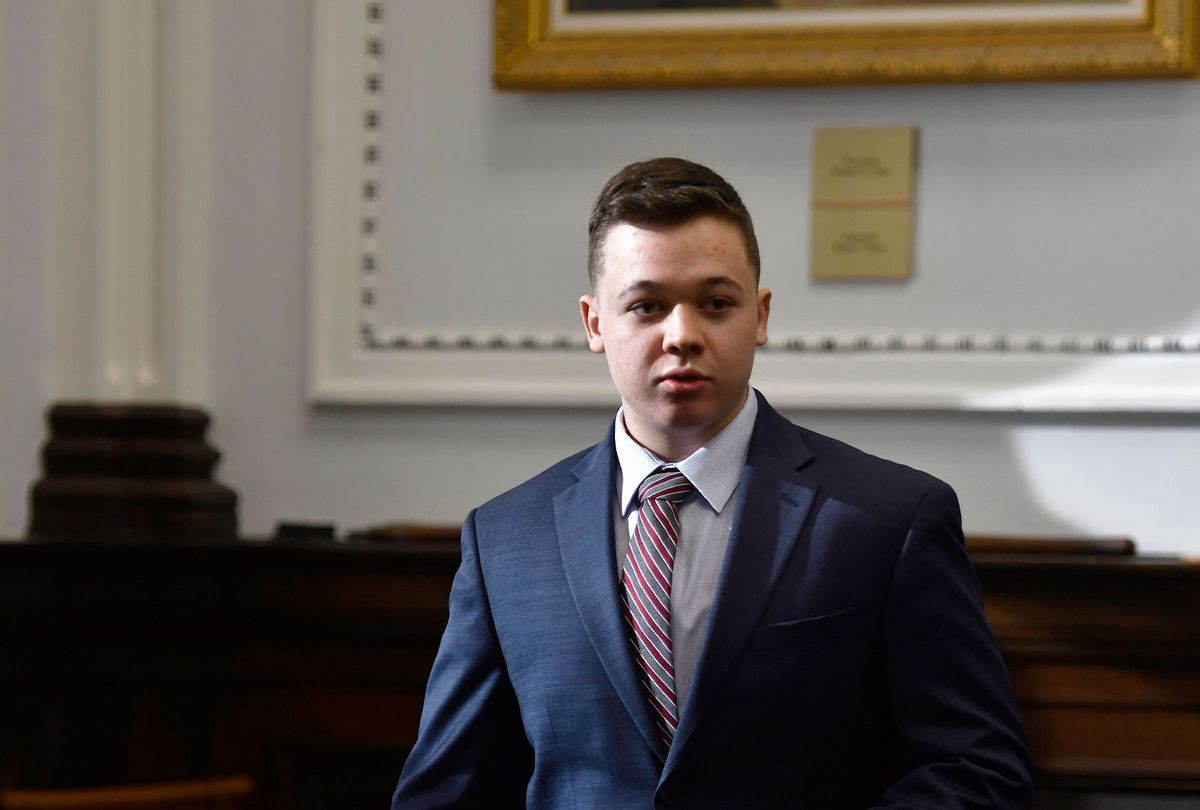Kyle Rittenhouse, charged with killing two people during the Kenosha, Wisconsin unrest while he was a teenager, was found not guilty on all five charges Friday.
Rittenhouse, who claimed self-defense, pleaded not guilty to first-degree reckless homicide, first-degree intentional homicide, attempted first-degree intentional homicide, and two felony counts of first-degree recklessly endangering safety.
"I didn't intend to kill them," Rittenhouse said during the trial. "I intended to stop the people who were attacking me."
The trial stems from an incident that unfolded on Aug. 25, 2020, during a wave of protests and riots in Kenosha following the police shooting of Jacob Blake, a 29-year-old Black man. Earlier that day, Rittenhouse traveled from his home in Antioch, Illinois, to allegedly defend a Kenosha car dealership from being vandalized and provide aid to people in need of medical assistance.
While there, Rittenhouse engaged in an altercation with Joseph Rosenbaum, 36, and Anthony Huber, 26, both of whom he shot and killed. Rittenhouse also shot and wounded 27-year-old Gaige Grosskreutz.
Want a daily wrap-up of all the news and commentary Salon has to offer? Subscribe to our morning newsletter, Crash Course.
The verdict came after roughly 26 hours of jury deliberation spanning four days. During the trial, which started on November 1, jurors heard from over 30 witnesses. The prosecution broadly argued that Rittenhouse could not claim self-defense because Rittenhouse himself sparked the conflict with Rosenbaum, Huber, and Grosskreutz.
"You cannot claim self-defense against a danger you create," said Kenosha County assistant district attorney Thomas Binger during his closing argument. "That's critical right here. If you're the one who's threatening others, you lose the right to claim self-defense."
Meanwhile, the defense claimed that the trial was a "political case" that was trying to assign arbitrary blame.
RELATED: Matt Gaetz praises Kyle Rittenhouse for "helping the country," offers him a congressional internship
"The district attorney's office is marching forward with this case because they need somebody to be responsible. They need somebody to put and say, 'We did it, he's the person who brought terror to Kenosha,'" Mark Richards, Rittenhouse's defense attorney, said.
"Kyle Rittenhouse is not that individual," he added. "The rioters, the demonstrators who turned into rioters. Those are the individuals."
RELATED: The NRA gave us Kyle Rittenhouse
The trial was presided over by Judge Bruce Schroeder, whose courtroom antics earned significant scorn from critics over the past several weeks.
In one instance, Schroeder drew criticism for making what appeared to be racist joke about Asian food that was en route to the courtroom, saying that he hoped it "isn't on one of those boats in Long Beach Harbor." Moreover, before the trial began, the judge garnered national scorn for remarking that people shot by Rittenhouse could not be called "victims" but rather, "rioters, looters and arsonists."
Criticism has also been directed at the prosecution, which many feel failed in their duty to effectively hold Rittenhouse accountable.
When Binger cross-examined Rittenhouse during the trial, the lawyer commented on the teen's choice to remain silent, an apparent violation of the Fifth Amendment, leading to a stern rebuke from Schroeder.
CORRECTION: This article originally stated that Rittenhouse crossed state lines with an AR-15. According to court testimony and police records, the gun, purchased on his behalf by a friend, was already in Wisconsin when Rittenhouse arrived.



Shares